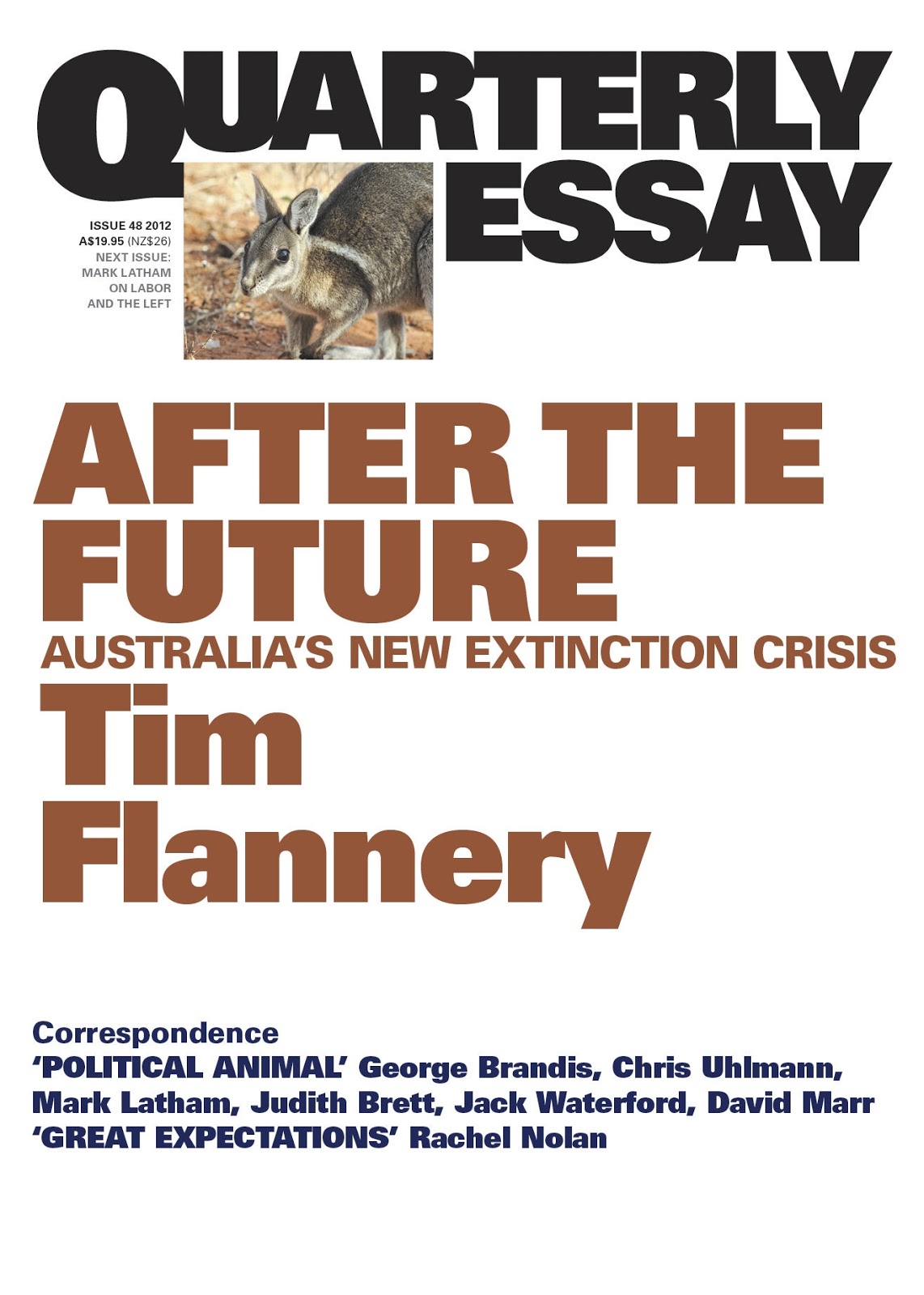 Staff Review, by Chris Saliba
Staff Review, by Chris Saliba Tim Flannery mixes both the personal and political in this cogent essay on Australia’s looming extinction crisis. The answer to this pressing issue is more public focus, political involvement and for scientific research.
Here’s something we think very little about: the perilous fate of Australia’s native species. In his second Quarterly Essay Tim Flannery, environmentalist, author and palaeontologist, highlights what he calls an extinction crisis. Australia is on the brink of losing a large range of its indigenous animals. As most of us live in cities and urban centres, far away from any wildlife, this is perhaps why it’s an ‘out-of-sight out-of-mind’ issue.
Yet it’s very real. Anyone who has read author Jared Diamond will know that globally there is a massive and frightening rate of species extinctions. This is the direct result of human impact on the environment. Some may say who cares if the Christmas Island pipistrelle, a small bat, is no longer with us. Yet Flannery has some compelling answers to this attitude, besides his personal grief at the pipistrelle’s demise: “The pipistrelle’s extinction was almost impossibly unbearable for me’.
Firstly Flannery argues that our attitude to this conservation issue reflects our own values and what we hold important. Do we shrug our shoulders as species become extinct, or do we see value in preserving them for future generations?
Secondly, there is the larger ecological question. Each species performs some function. One animal preys on another, or eats a particular plant, or fertilises the earth with its dung, or spreads seeds, and thus plays a part in regulating and balancing the ecology. Eliminate too many species, and the whole system could collapse.
Flannery’s essay covers many interesting aspects of this issue. He discusses the current political environment that is so hostile to conservation issues, Australia’s ecological history (there’s a reprisal of Flannery’s Future Eaters theory, with a good explanation of Aboriginal firestick farming), and finally why well funded scientific research is absolutely necessary. Without the science, we can’t keep track of the fate of endangered species. As a possible answer to many of the problems he proposes, Flannery suggests that public-private partnerships may be the way to raise the necessary money to help stop Australia’s extinction crisis.
This is a serious and well-crafted essay that is both educational (I learnt some new things, anyway) and stimulating. Flannery highlights the irony that Australia is a country full of patriotic feeling, but we have little knowledge of the country beneath our feet.
Quarterly Essay 48: After The Future, by Tim Flannery. Published by Black Inc. ISBN: 9781863955829 RRP: $19.95
No comments:
Post a Comment